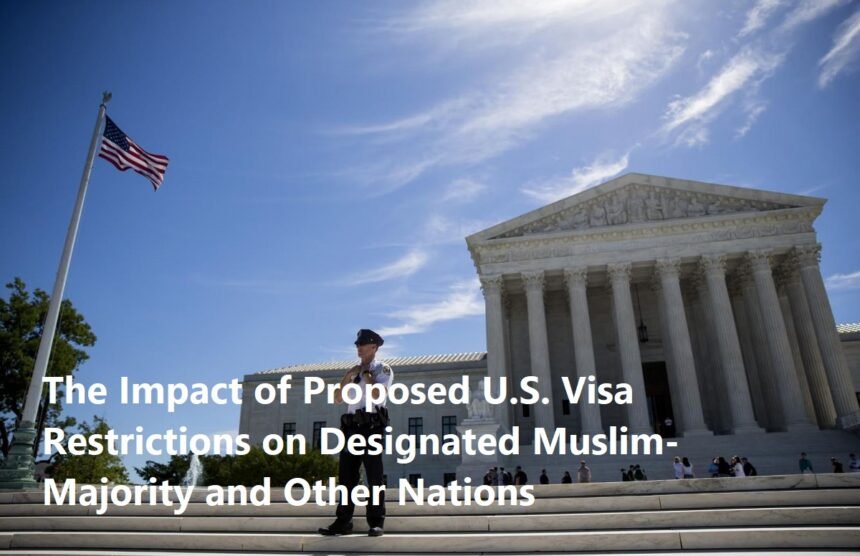The potential imposition of visa restrictions on citizens from Iran, Syria, Yemen, Sudan, Somalia, Venezuela, Cuba, North Korea, and Afghanistan by the United States government raises significant concerns regarding international relations, human rights, and the potential disruption of cultural and economic exchange. Such a measure, affecting countries with predominantly Muslim populations alongside others deemed adversaries, demands careful scrutiny of its rationale, implications, and potential unintended consequences.
The rationale behind these proposed restrictions is often rooted in national security concerns. Proponents argue that rigorous vetting procedures are essential to prevent potential threats from entering the country. They point to the perceived vulnerability of certain regions to terrorism and instability, suggesting that restricting entry is a necessary safeguard. While the imperative to protect national security is undeniable, the effectiveness of blanket restrictions targeting entire nationalities is questionable. Such measures can be seen as discriminatory and potentially counterproductive, alienating communities and fostering resentment that could inadvertently contribute to radicalization.
Furthermore, the humanitarian implications of such a policy are profound. Limiting access to the U.S. for individuals seeking medical treatment, education, or refuge from conflict zones directly contradicts the principles of humanitarian aid and compassion. Students, scholars, and professionals from these countries would face significant obstacles in pursuing academic and career opportunities, hindering intellectual and cultural exchange that benefits both the U.S. and the affected nations. The impact would be particularly devastating for individuals fleeing persecution or violence, effectively denying them a safe haven and violating international obligations related to asylum.
Beyond the direct impact on individuals, such restrictions can also have significant economic repercussions. Trade, investment, and tourism between the U.S. and the designated countries could suffer, affecting businesses and economies on both sides. The flow of skilled workers and entrepreneurs, crucial for innovation and economic growth, would be curtailed, potentially hindering the U.S.’s competitive edge in the global market. The restriction on Venezuelan citizens, for instance, could further exacerbate the already dire economic situation in the country, contributing to instability and potentially triggering a humanitarian crisis.
The inclusion of nations like Cuba and North Korea, which already face significant U.S. sanctions, highlights the complex geopolitical considerations at play. While these countries present distinct security and political challenges, blanket visa restrictions may not be the most effective tool for addressing these issues. Dialogue and engagement, however challenging, are often more effective in promoting positive change and de-escalating tensions. Imposing further restrictions can isolate these countries, hindering opportunities for communication and potentially exacerbating existing conflicts.
The broader implications for U.S. foreign policy are also worth considering. Such measures risk damaging the U.S.’s reputation as a beacon of democracy and opportunity, undermining its ability to exert influence on the global stage. Allies may view the restrictions as a sign of isolationism and unilateralism, potentially weakening international cooperation on issues of shared concern. Furthermore, the perception of discrimination could fuel anti-American sentiment and undermine the U.S.’s efforts to combat terrorism and extremism by alienating moderate voices within Muslim communities.
In conclusion, while the desire to ensure national security is understandable, the proposed U.S. visa restrictions on citizens from designated Muslim-majority and other nations present a complex and multifaceted challenge. A more nuanced approach, focusing on targeted vetting procedures and international cooperation, would be more effective in mitigating security risks while upholding humanitarian principles and promoting global engagement. Blindly restricting entry based on nationality not only risks alienating communities and hindering cultural exchange but also undermines the fundamental values and long-term interests of the United States. A careful reassessment of the policy’s potential consequences is therefore crucial to ensure a responsible and effective approach to national security.












